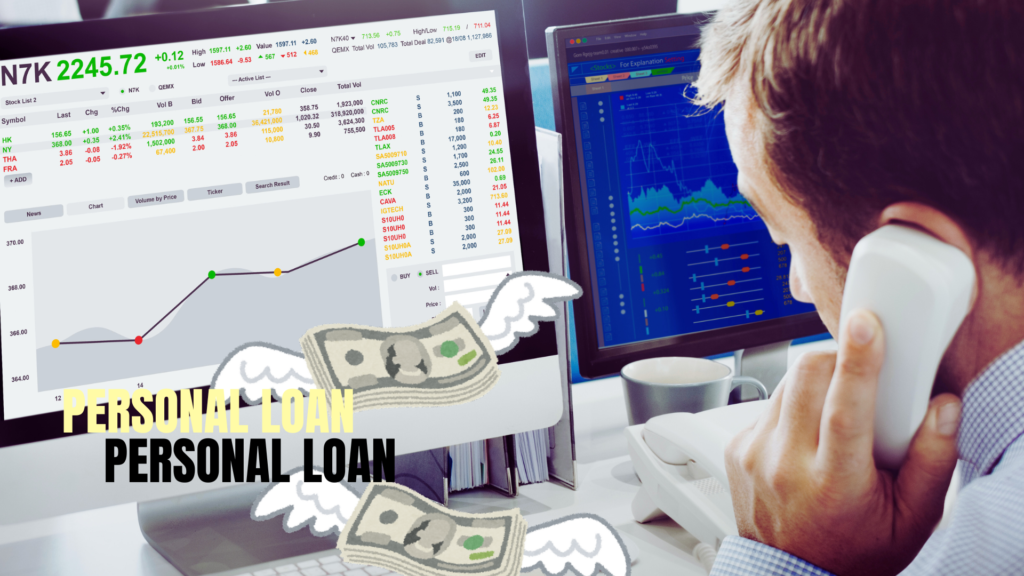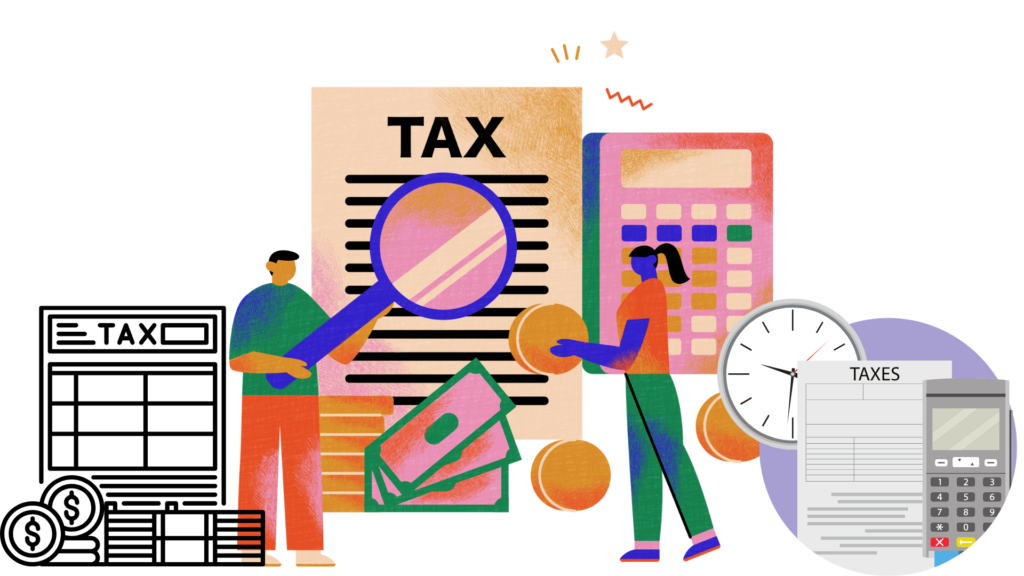Investing in the stock market can be a lucrative opportunity for many. But, when borrowing funds to do so and also when the stocks are volatile, they come with huge risks. Some investors take personal loan to invest in shares in order to increase their buying capacity. Although such a practice might lead to huge profits, it certainly doesn’t come without major drawbacks. In this article, we will discuss about why not to take personal loan for share trading and analyze all such cons associated with this facility of finance.
A personal loan is an unsecured type of borrowing which means that the money you borrow is not secured against any asset such as your home. Because there is no security this means it’s accessible for a variety of different things including investments. Personal loans are attractive because they’re flexible and generally have relatively quick approval processes, so people can use a loan to meet immediate financial needs or even to take advantage of an investment opportunity without needing to lock in other assets. But this convenience can also lead borrowers to make hasty decisions, particularly when it comes to volatile investments like shares.
1. Fluctuations in markets
The stock market is very unpredictable. Prices fluctuate rapidly due to economic indicators, company performance and world events. Sometimes, when a person takes a personal loan to invest in banks, he ends up losing money even though he has to repay the loan. This means that if the market crashes, investors could find themselves in a very undesirable financial position, losing money on their investments while making monthly loan payments
Example:
Imagine that an investor had borrowed a personal loan of $10,000 at a 10% interest rate to invest in promising tech stock. After some time had elapsed after the investment was made, adverse news about the company resulted in a drop in its stock price by 30%. An investor currently holds $7,000 in shares, but he has to pay off the loan in the amount of $10,000 with interest added.- Personal Loan for Share Trading
2. Debt accumulation
Using borrowed funds for bankruptcy can lead to significant debt accumulation. If investments do not generate a return that exceeds the cost of debt (including interest payments), investors may struggle to meet their repayment obligations This situation can lead to cyclical debt with individuals possibly having to take out additional loans to finance existing debt, creating a financial crisis
Example:
An investor can borrow more over a longer period of time to compensate for losses on existing investments. This can create a situation where there is more debt than can be managed, which can cause financial stress and potentially bankruptcy.-Personal Loan for Share Trading

3. Interest Payments
There are loans like personal loans that carry a higher interest rate than most other loans. The expenses relating to the paying back of this loan can wipe out the possible returns from stock holdings. In a situation where an investor takes a loan at a high interest, invest in a project but does not get the expected returns, he could in fact make a loss.
Example:
If an investor is able to borrow an amount of $10,000 at an annual interest of 12% for a period of 3 years, this investor will need to pay in the region of $4,000 as interest during the period which is if he makes the minimum payments. If earnings from investment did not yield more that 5% each year, in the long run, the investor would in practical terms be said to have lost considering the interest costs incurred.- Personal Loan for Share Trading
4. Stress and stress
Carrying debt can cause a lot of stress and anxiety, especially if the investments aren’t performing well. Pressure to pay on time can cloud judgment and lead investors to make poor decisions to incur losses. This emotional stress can further exacerbate financial difficulties and affect overall well-being
Example:
An investor who took out a personal loan for share trading may panic during a market downturn and sell the stock at a loss to pay cash to repay the loan. This move may not allow them to benefit from potential future increases in stock prices.- Personal Loan for Share Trading
5. Impact on credit score
Failure to repay personal loans on time can adversely affect personal credit scores which are important for future credit opportunities. Low credit scores can be the result of defaults or defaults, making it difficult and expensive to obtain credit in the future. This longer-term effect can impede economic adjustment and increase borrowing costs.
Example:
If an investor loses a lot of money on his own loan due to financial pressure from the successful investment, his credit rating can plummet and this damage makes it stronger to have a better financial plan in the future. Personal Loan for Stock Trading
6. Short-term investment prospects
Personal loans generally have shorter repayment terms compared to other types of finance. This short period may not align well with investments in the stock market, which generally need time to mature and generate returns. Investors forced to sell stock early because of obligation to pay cash may lose rather than gain.
Example:
If an investor takes out a personal loan with a two-year repayment term but invests in growth stocks that require several years to appreciate significantly, they might have to sell their shares prematurely at a loss when the loan comes due. personal loan for stock trading

7. Lack of financial preparation
Putting money into investments using borrowed cash shrinks an investor’s safety net for urgent situations or surprise costs. Should the market take a downturn or if personal life changes (like losing a job or facing health crises), people might not have enough money to pay for both their daily needs and their loan payments.
Example:
An investor who has invested all available funds through multiple personal loans may struggle if faced with unexpected medical bills or car repairs. Without access to deposits or liquid assets, they could fall behind on loan payments and face additional financial penalties.
8. Lack of experience and poor decision making
Many individuals considering personal loan for share trading do not have sufficient experience or knowledge of the market. Clearly, inexperienced investors tend to make quick decisions based on emotion rather than strategy, resulting in poor investment choices that can compound financial losses
Example:
A novice investor might hear about a trending stock on social media and rush into buying it using borrowed funds without understanding the underlying business fundamentals or market conditions, leading to potential losses. personal loan for stock trading
Conclusion
While leveraging borrowed funds through private loans may seem like an attractive way to increase investment capacity, it comes with significant risks that can lead to financial stability has endangered the result. Market volatility, rising interest rates, accumulation of debt, emotional stress and inexperience are important factors that investors should consider before taking this route
Before making any borrowing decisions, individuals should do thorough research and consider alternatives—such as savings or long-term small dollar investments cost distribution.
Ultimately, informed decision-making is important in the complexities of investing in the stock market especially when you’re considering using borrowed funds as part of that strategy. By understanding these risks and planning accordingly, investors can protect themselves from potential investment pitfalls while responsibly pursuing their investment goals.
The use of personal loan for share trading may have different tax implications, depending largely on the use of the loans and the nature of the investment Below we explore these implications in more detail.
Tax implications of using personal loan for share trading
1. Interest Payments and Deductions
Personal loans don’t give you direct tax advantages like home loans or education loans do. But if you use the money from a personal loan for certain things, like investing in a business or buying stuff that makes you money, you might be able to deduct the interest you pay on the loan.
Business Expenses:
A loan taken for personal reasons can be treated differently when the purpose of taking the loan is to invest in shares in the course of performing a business activity (like trading). The interest is therefore a possible claim under Section 37 of the Income Tax Act of India. In other words, it is possible to assume that while the loan was needed for the purpose of paying the interest, the trading was also aimed at the business profit and not merely an investment, hence the interest will be a less taxable income.- personal loan for stock trading
Capital Gains:
In instances where shares that are funded by some borrowed amount are later disposed off, the proceeds received above the cost is said described as capital gains. In the event that these shares are retained for a period longer than 1 year, they are taxed under long term capital gains taxation. (LTCG) which is presently exempt up to ₹1 lakh in a financial year for individual assesses. The excess gains above this limit are charged a tax of 10% on them without the indexation benefit. Short-term capital gains (STCG) on such holdings which are less than one year are taxed at the rate of 15%.
2. Nature of Revenue Sources
The characterization of income earned from buying and selling shares is important in assessing tax treatment:
Investor and Trader:
For tax purposes, there are notable distinctions in treatment – in the event that you are regarded as an investor, and when considered a trader. For instance, in the event of purchasing shares (and holding them long term), one can assume the role of an investor, where one’s profits would be subject to capital gains tax. On the other hand, in the event of advanced purchasing of shares without measuring how long they would be kept, and more often than not determined using borrowed money, one could be classified as a trader and such profits would be taxed as income from business.
Tax Audits:
If the level of your trading activities is considered high enough that you are treated as a trader, there is the possibility that you will be required to keep proper records and even file tax returns such that if your turnover goes beyond certain prescribed limits. That complicates and may increase the cost of your financial management-personal loan for stock trading
3. Documentation
Interest payments on personal loans employed for purchase of shares cannot be deducted unless supporting documents are provided:
Proof of Use:
An individual should keep adequate records to prove that the loan was taken only for the purposes of that specific investment or investments. This will include bank transaction statements clearly showing shares bought using the loan.
Certificates of Interest:
Securing an interest certificate from the creditor makes it easy to provide evidence whenever such claims are made during the taxation period. -Personal Loan for Share Trading
4. Absence of Benefits for Direct Tax
It should be remembered that stricter conditions apply for tax benefits on personal loans unlike in the case of say house or education loans. Personal loans are not typically covered under Section 80C Nikhil’s Views and Critique except in very limited circumstances like taking a personal loan to purchase a residential house or for business purposes.

5. Possible Dangers and Issues
Leverage in investment entails additional risks, which can impact your net worth:
Economic Strain:
Medically sound investment strategies can sometimes produce negative returns. Therefore, in the unfortunate event that you end up borrowing to finance an investment, you may find it difficult repaying the loan and buying basic necessities at the same time. This may result in financial hardship and even lead to a poor credit rating should the individual miss their repayments.
Risk Associated with Borrowing:
The assumption of risk in an investment depends on the bouyancy of the markets. However, this narrowed down the increased reliance on borrowed capital, which is already risk prone. Should market scenarios turn adverse, losses could very likely escalate while regular payments to a loan taken still have to be observed.-Personal Loan for Share Trading
Final thoughts
There might be taxing strategies in share trading through a personal loan which would depend on the use of the money and even on the classification of such trades as either investments or business. Even though interest payments may be deducted in certain conditions, adequate records must be kept and the payment obligations must be understood.
Because of these intricacies, it is recommended that a tax advisor or a financial consultant be engaged before making such financial plans, so that all legal requirements are observed and the advantages that may accrue optimized.
ALSO READ: LEGAL COMPLIANCE FOR STARTUPS IN INDIA- A Step-by-Step Guide